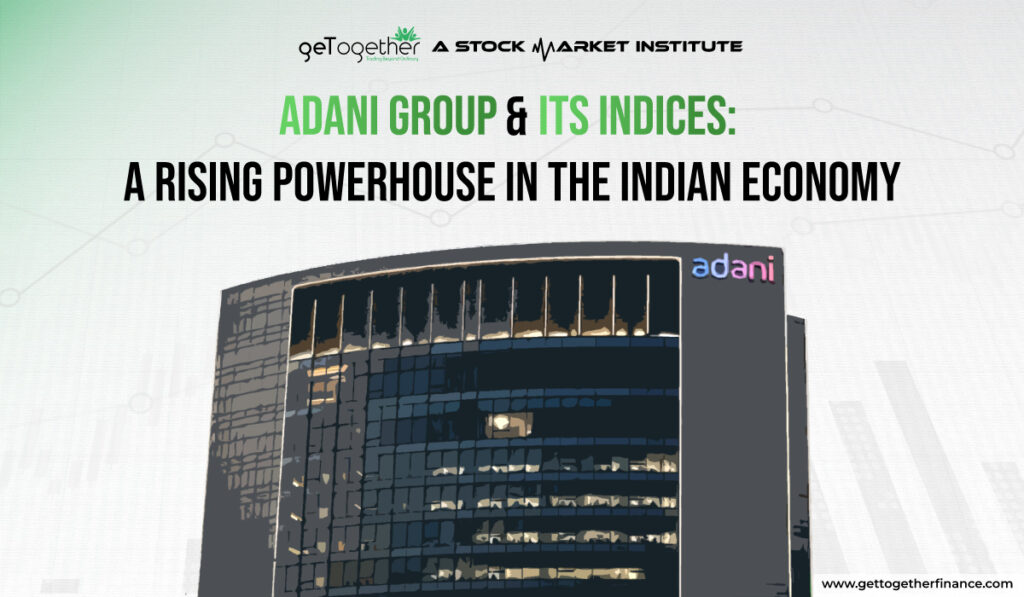
Gautam Adani and the Adani Group: Navigating Allegations and Investigations
Gautam Adani, the chairman of the Adani Group, has been one of the most prominent business figures in India and around the world. His meteoric rise to the top of the global business ranks, with a net worth exceeding billions of dollars, is a testament to his business acumen, strategy, and ability to navigate through various sectors including energy, infrastructure, ports, and logistics. However, the Adani Group has not been immune to controversies, legal battles, and scrutiny, which has raised questions about its business practices, transparency, and governance.
Despite these challenges, the Adani Group has continued to expand rapidly, securing high-value contracts, undertaking massive infrastructure projects, and enjoying a strong political network. But recent controversies, particularly in relation to financial dealings and governance, have led to greater scrutiny. The Hindenburg Research report, environmental concerns, and questions regarding the financial practices of the group have all contributed to casting a shadow over Adani’s otherwise spectacular rise.
The Allegations Against Adani Group
In the business world, no major player escapes controversy, and the Adani Group has been no exception. Over the years, a variety of allegations have been raised against the group and its management, ranging from accusations of financial irregularities to concerns about environmental sustainability. These allegations have, in part, led to investigations by regulatory bodies such as the Securities and Exchange Board of India (SEBI) and other financial watchdogs.
1. Hindenburg Research Report – Financial Allegations
One of the most significant controversies surrounding the Adani Group came to light in January 2023 when Hindenburg Research, a US-based short-selling firm, released a detailed report accusing the Adani Group of stock manipulation, accounting fraud, and financial mismanagement. According to the report, the Adani Group had inflated its stock prices and used a network of offshore shell companies to mask its financial dealings. The report also accused the group of overstating its assets and making questionable financial disclosures to investors.
The release of the Hindenburg report caused a massive drop in the stock prices of Adani Group companies, wiping out billions of dollars in market capitalization within a matter of days. The allegations made in the report raised serious concerns about the corporate governance practices of the group and its transparency with investors. While the Adani Group vehemently denied the accusations and called the report “baseless,” the market reaction was swift, and the controversy ignited widespread discussions on financial irregularities, corporate governance, and the role of regulatory bodies in ensuring transparency.
2. SEBI’s Scrutiny and Investigations
In the wake of the Hindenburg allegations, the Securities and Exchange Board of India (SEBI), the regulatory body overseeing the stock market in India, announced that it would initiate an investigation into the Adani Group’s financial practices. SEBI’s focus was primarily on the group’s corporate governance and whether there had been any violations of Indian securities laws, particularly in relation to the market manipulation claims.
The SEBI investigation involved scrutinizing the financial dealings of the Adani Group, including its stock price movements, disclosure practices, and its relationships with offshore entities. SEBI’s investigations were further complicated by the political connections of Gautam Adani and the Adani Group, as the company is known to have close ties with the ruling government in India. Critics of the Adani Group have argued that the company’s rise to power has been aided by these political connections, while supporters argue that Adani’s success is the result of business savvy and strategic investments.
The SEBI investigation has raised questions about the broader issue of corporate governance in India. While India has seen an increase in regulatory scrutiny and market transparency in recent years, allegations against powerful business figures like Adani challenge the strength and independence of the country’s regulatory institutions.
3. Environmental and Social Concerns
In addition to financial allegations, the Adani Group has faced significant criticism on environmental and social grounds. The company’s involvement in coal mining, particularly the controversial Carmichael coal mine project in Australia, has been a source of concern for environmental activists and conservationists. The project has faced opposition from local communities, environmental groups, and even some international organizations, who argue that it will have devastating consequences for local ecosystems and contribute to climate change.
The Adani Group’s operations in India have also drawn criticism for their environmental impact. Several of the company’s infrastructure and energy projects have been accused of causing harm to local ecosystems, including forests and wildlife habitats. In addition to the environmental concerns, the group has been criticized for allegedly displacing local communities to make way for its projects, further raising questions about the social responsibility of the company.
Political Allegations and Crony Capitalism
One of the most controversial aspects of the Adani Group’s rise has been its relationship with political leaders, particularly with Indian Prime Minister Narendra Modi. Gautam Adani and his company have been accused of benefiting from preferential treatment due to their close political ties. Critics have suggested that the Adani Group has used its connections with the Modi government to secure lucrative contracts, favorable regulations, and other advantages that have helped fuel its rapid growth.
While both Adani and Modi have consistently denied any undue influence, the perception of crony capitalism remains a persistent issue. The Adani Group’s rapid expansion in sectors like energy, infrastructure, and transportation has often coincided with favorable government policies and initiatives, leading some to question whether the company’s growth has been facilitated by political connections rather than purely market-driven forces.
In this context, the SEBI investigation into the Adani Group could also explore whether the company’s success has been unduly influenced by its political ties and whether this has had an impact on its business practices and market behavior.
The Role of the Adani Group in India’s Economic Landscape

Despite the controversies and challenges faced by the Adani Group, the company continues to play a significant role in India’s economy. The group has become a major player in sectors such as energy, infrastructure, logistics, and ports, contributing to India’s economic growth and development. Adani’s leadership has helped the group secure massive projects, including the development of India’s largest commercial port, the Mundra Port, and a major player in the renewable energy space, with a focus on solar and wind power.
Adani’s investments in infrastructure and energy have been viewed as critical to India’s development, particularly in addressing the country’s growing energy needs and modernizing its transportation networks. The Adani Group’s involvement in key infrastructure projects has earned it both admiration and criticism, depending on the perspective. For some, the group is seen as a catalyst for growth, while for others, it is viewed as a symbol of corporate power and political influence.
The Future of the Adani Group
The future of the Adani Group remains uncertain as the company faces both external scrutiny and internal challenges. The outcome of the SEBI investigation into the allegations of market manipulation and financial irregularities could have a significant impact on the company’s future growth prospects. Additionally, the growing environmental and social concerns surrounding the group’s operations will require a thoughtful response to avoid further reputational damage.
For Gautam Adani, the challenges are twofold: defending his business empire from allegations and regulatory scrutiny while continuing to expand the Adani Group’s reach in India and internationally. The ability of the group to maintain investor confidence and navigate the complex regulatory environment will be critical to its long-term success.
Moreover, the Adani Group’s close ties to the government and its political connections will likely continue to be a source of both support and criticism. As India continues to evolve as a global economic power, the role of companies like the Adani Group in shaping the country’s business landscape will be of growing importance.
Conclusion
The Adani Group’s journey from a small trading company to one of the largest conglomerates in India has been marked by rapid growth, financial success, and significant controversies. The recent allegations against the company, particularly those raised in the Hindenburg Research report, have drawn attention to the group’s financial practices, corporate governance, and political ties.
As investigations into these allegations continue, the future of Gautam Adani and the Adani Group remains uncertain. However, one thing is clear: the company’s influence in India’s economic landscape is undeniable, and how it navigates these challenges will determine its future trajectory. The SEBI investigation and the broader scrutiny of the Adani Group will continue to be a key area of focus for both investors and regulators as the company faces an increasingly complex business environment.
News
Scandalous! Celebrity Caught in a Shocking Incident with a Fan in Public!”
Shocking Incident Involving Kareena Kapoor: A Fan Misbehaves in Front of the Media In a deeply unsettling incident, Bollywood actress Kareena Kapoor Khan found herself at the center of an unexpected and distressing situation when a fan reportedly touched her…
End of content
No more pages to load






